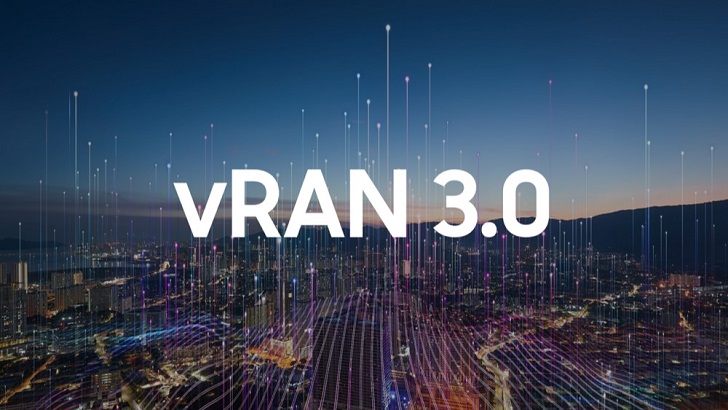[ad_1]
Samsung delivers its vRAN 3.0, demonstrating the power of software-driven RAN with new features and capabilities to enable a smarter, more efficient network
Samsung Electronics Co., Ltd. announced the company is bringing next-level capabilities to its virtualized RAN (vRAN) to improve performance and increase power savings. The advanced vRAN software will boast a range of new “smart” features—optimized to address the needs of forward-looking operators. These include advanced capabilities that will help pave the path towards the next phase of network virtualization, including features that increase bandwidth support of Massive MIMO radios, analyze hourly traffic patterns to optimize network operating conditions, and automate networks with ‘sleep mode’ to save energy consumption.
A leader in the vRAN market, Samsung has been contributing to the earliest massive commercial adoption of 5G virtualized networks across the world. The company has been the only major vendor that has conducted large-scale commercial vRAN deployments with Tier One operators on multiple continents—in the Americas, Europe and Asia.
“While Samsung’s 5G vRAN has successfully proven its performance by delivering results on par with traditional hardware-based equipment in commercial networks, we are moving fast into the next phase of vRAN software development—Samsung’s vRAN 3.0,” said Ji-Yun Seol, Vice President, Head of Product Strategy, Networks Business at Samsung Electronics. “The software-centric nature of the solution allows us to add these enhanced capabilities—performance optimization and energy efficiency—much faster than traditional RAN hardware. Samsung’s newest features will add tremendous value to operators rapidly shifting to virtualized networks.”
Samsung’s next-level vRAN capabilities include the following:
Performance Optimization
- 200MHz 3 Cell Support
With a software upgrade, Samsung’s vRAN will be equipped with the ability to provide 3 Cell configuration with 200MHz of bandwidth support using its 64T64R Massive MIMO radios. This is more than triple the radio bandwidth support when compared to its previous generation software, capable of supporting an operator’s entire mid-band 5G spectrum holdings. - Modem Algorithm Optimization
Samsung is incorporating a modem algorithm optimization approach to its development roadmap. Unlike a hardware-centric approach, modem algorithm optimization enables operators to receive software tailored to their needs, with only the required features and configurations, allowing for an optimized and efficient use of COTS servers.
Power Savings
- CPU Core Sleep Mode
Available on Samsung’s vRAN software, this feature reduces power consumption by automatically putting the CPU in “sleep mode”—or turning off unused CPU Cores—during periods of low data traffic. When capacity demand increases again, CPU Cores exit sleep mode.
- Adaptive Core Allocation
This feature of Samsung’s vRAN software assigns a number of CPU Cores at cell setup proportional to the number of active cells. Unassigned or unused CPU Cores are set to idle mode to reduce power consumption and are activated when capacity demand increases. - Energy Saving Feature Orchestrator (ESFO)
ESFO is an orchestration tool that manages multiple energy saving features in one platform, optimizing efficiency with no service interruption. ESFO automatically analyzes hourly traffic patterns and optimizes the operating conditions of each Energy Saving feature, per sector and time zone. The tool constantly updates the multi-level Energy Saving operations of multiple power saving features—such as cell on/off and Tx path on/off—to reflect traffic pattern changes and prior results.
With these enhanced capabilities, Samsung’s vRAN can support smarter management and operation of wide-scale commercial virtualized networks, as more operators seek to meet the next-generation network demands of their customers. Samsung plans to launch its new vRAN capabilities to global operators, beginning its rollout in North America in the first half of 2023.
Samsung has pioneered the successful delivery of 5G end-to-end solutions including chipsets, radios and core. Through ongoing research and development, Samsung drives the industry to advance 5G networks with its market-leading product portfolio from virtualized RAN and Core to private network solutions and AI-powered automation tools. The company is currently providing network solutions to mobile operators that deliver connectivity to hundreds of millions of users around the world.
[ad_2]


